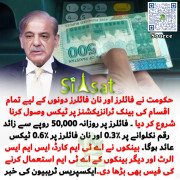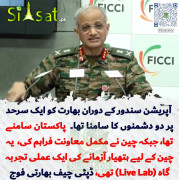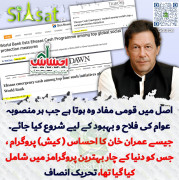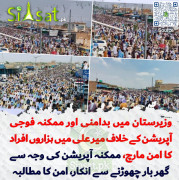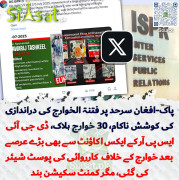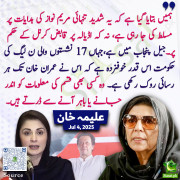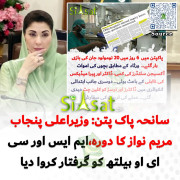hans
Banned
Analysis by Simba Russeau
CAIRO, May 6, 2011 (IPS) - Global spending on arms in 2010 were an estimated 1.6 trillion dollars, with governments in the Middle East dishing out more than 111 billion for weapons - raising questions as to whether Western arms suppliers circumvented international treaties by exporting to repressive regimes.
Last year, Saudi Arabia, the United Arab Emirates, Iraq, Oman, Kuwait, Bahrain and Egypt accounted for over 75 percent of U.S. arms sales - with Saudi Arabia ordering more than 60 billion dollars in weaponry, making it the leading buyer.
"There is no doubt that the intersection of arms sales and human rights is a sticky one, and late last year the [Government Accountability Office] GAO reported that the U.S. Defence and State Departments havent always documented their reasons for such sales consistently," Laicie Olson, senior policy analyst with the Center for Arms Control and Non-Proliferation in Washington told IPS.
According to reports, the U.S. is the leading supplier of conventional arms to the Middle East, surpassing Russia - which is the worlds second largest arms supplier - by nearly 20 percent.
Large defence contractors such as Boeing and Lockheed Martin are some of the major profiteers - these companies and their employees depend on arms sales for a significant portion of their revenue.
However, in a region that is said to be one of the most militarised in the world, human rights advocates claim that the U.S. continues to circumvent legislation like the Leahy Amendment, which prohibits U.S. arms sales to governments that fail to curb grave human rights violations.
Countries like Saudi Arabia whose human rights record in regards to migrant domestic worker abuse, womens rights and upholding a juvenile death penalty have come under particular scrutiny.
"There does seem to be a level of reform there that needs to be undertaken. However, there are also cases in which U.S. arms sales have provided an inroad for upholding human rights," Olson said.
"In Egypt, the U.S. was able to exert a fair amount influence due to its long-time support of the military. There were a few small breaks in this trend but, ultimately, Egypt did not go the way of so many other countries in the Middle East who seem to have decided the only way to quell a revolution is to [literally] kill it."
Critics argue that the Egyptian military was right in line with Bahrain, Saudi Arabia and Yemen in their use of U.S.-made tear gas, tanks and other types of equipment to brutally crack down on anti-regime rebellions.
"In the Middle East youre seeing tear gas, water cannons, shotguns, firearms and armoured vehicles being used to disperse protests and for law enforcement or internal security operations that in some cases have involved lethal force," Helen Hughes, a researcher with the UK-based Amnesty International told IPS.
Arms export licences from European Union (EU) member states such as France, the Netherlands, Italy, Germany, Malta, Bulgaria, Spain, Belgium and Poland to Algeria, Libya, Morocco and Tunisia doubled from 985 million euros in 2008 to 2 billion euros in 2009.
In February of this year, the UK government revoked 52 licences for Bahrain and Libya due to their brutal crackdown on dissent. They also implemented an arms embargo on Libya in response to U.N. Resolution 1973. A fourth quarter listing in the Foreign and Commonwealth Offices Strategic Export Control Reports revealed that in 2010 combat aircraft and small arms totalling 3.76 million pounds were licensed by the UK to Libya.
"With the EU, which actually already has an export control regime that is called the EU Common Position on Export Controls you have a criteria on human rights that relates to internal repression and serious human rights violations as well as also international humanitarian law," explained Hughes.
"But it seems that from the transfers that weve been monitoring over the last five years - in relation to say for example Libya, Bahrain or elsewhere in the region - that the governments havent been rigorously complying with that criteria."
The hope is that "with the international Arms Trade Treaty (ATT) there would be a much clearer and stricter obligation on states to prohibit arms transfers where a potential risk exists and also a methodology to assist in regulating this international law," Hughes added.
According to Olson, the ATT - which was created to curb the irresponsible trade and transfer of arms - raises some important questions about the limitations of arms sales, what they currently are, and maybe what they should be.
But there are problems. "Under the ATT the U.S. and UK would be able to arm Muammar Gaddafi, but not Libyas rebels, since Gaddafi is still the head of an internationally recognised government and the rebels, well are not," Olson said.
Some analysts are arguing that the NATO intervention in Libya is a platform for arms dealers to showcase their weaponry to potential buyers.
"For example, even to get membership into NATO some countries have to in effect upgrade their military to a certain level," Anup Shah, creator of the website Global Issues told IPS. "So for some Eastern European countries who are joining NATO from a pure economic perspective its like a boom to the military industrial complex as theyll have a new source of nations to sell arms to." (END)
Source:http://ipsnews.net/news.asp?idnews=55513
CAIRO, May 6, 2011 (IPS) - Global spending on arms in 2010 were an estimated 1.6 trillion dollars, with governments in the Middle East dishing out more than 111 billion for weapons - raising questions as to whether Western arms suppliers circumvented international treaties by exporting to repressive regimes.
Last year, Saudi Arabia, the United Arab Emirates, Iraq, Oman, Kuwait, Bahrain and Egypt accounted for over 75 percent of U.S. arms sales - with Saudi Arabia ordering more than 60 billion dollars in weaponry, making it the leading buyer.
"There is no doubt that the intersection of arms sales and human rights is a sticky one, and late last year the [Government Accountability Office] GAO reported that the U.S. Defence and State Departments havent always documented their reasons for such sales consistently," Laicie Olson, senior policy analyst with the Center for Arms Control and Non-Proliferation in Washington told IPS.
According to reports, the U.S. is the leading supplier of conventional arms to the Middle East, surpassing Russia - which is the worlds second largest arms supplier - by nearly 20 percent.
Large defence contractors such as Boeing and Lockheed Martin are some of the major profiteers - these companies and their employees depend on arms sales for a significant portion of their revenue.
However, in a region that is said to be one of the most militarised in the world, human rights advocates claim that the U.S. continues to circumvent legislation like the Leahy Amendment, which prohibits U.S. arms sales to governments that fail to curb grave human rights violations.
Countries like Saudi Arabia whose human rights record in regards to migrant domestic worker abuse, womens rights and upholding a juvenile death penalty have come under particular scrutiny.
"There does seem to be a level of reform there that needs to be undertaken. However, there are also cases in which U.S. arms sales have provided an inroad for upholding human rights," Olson said.
"In Egypt, the U.S. was able to exert a fair amount influence due to its long-time support of the military. There were a few small breaks in this trend but, ultimately, Egypt did not go the way of so many other countries in the Middle East who seem to have decided the only way to quell a revolution is to [literally] kill it."
Critics argue that the Egyptian military was right in line with Bahrain, Saudi Arabia and Yemen in their use of U.S.-made tear gas, tanks and other types of equipment to brutally crack down on anti-regime rebellions.
"In the Middle East youre seeing tear gas, water cannons, shotguns, firearms and armoured vehicles being used to disperse protests and for law enforcement or internal security operations that in some cases have involved lethal force," Helen Hughes, a researcher with the UK-based Amnesty International told IPS.
Arms export licences from European Union (EU) member states such as France, the Netherlands, Italy, Germany, Malta, Bulgaria, Spain, Belgium and Poland to Algeria, Libya, Morocco and Tunisia doubled from 985 million euros in 2008 to 2 billion euros in 2009.
In February of this year, the UK government revoked 52 licences for Bahrain and Libya due to their brutal crackdown on dissent. They also implemented an arms embargo on Libya in response to U.N. Resolution 1973. A fourth quarter listing in the Foreign and Commonwealth Offices Strategic Export Control Reports revealed that in 2010 combat aircraft and small arms totalling 3.76 million pounds were licensed by the UK to Libya.
"With the EU, which actually already has an export control regime that is called the EU Common Position on Export Controls you have a criteria on human rights that relates to internal repression and serious human rights violations as well as also international humanitarian law," explained Hughes.
"But it seems that from the transfers that weve been monitoring over the last five years - in relation to say for example Libya, Bahrain or elsewhere in the region - that the governments havent been rigorously complying with that criteria."
The hope is that "with the international Arms Trade Treaty (ATT) there would be a much clearer and stricter obligation on states to prohibit arms transfers where a potential risk exists and also a methodology to assist in regulating this international law," Hughes added.
According to Olson, the ATT - which was created to curb the irresponsible trade and transfer of arms - raises some important questions about the limitations of arms sales, what they currently are, and maybe what they should be.
But there are problems. "Under the ATT the U.S. and UK would be able to arm Muammar Gaddafi, but not Libyas rebels, since Gaddafi is still the head of an internationally recognised government and the rebels, well are not," Olson said.
Some analysts are arguing that the NATO intervention in Libya is a platform for arms dealers to showcase their weaponry to potential buyers.
"For example, even to get membership into NATO some countries have to in effect upgrade their military to a certain level," Anup Shah, creator of the website Global Issues told IPS. "So for some Eastern European countries who are joining NATO from a pure economic perspective its like a boom to the military industrial complex as theyll have a new source of nations to sell arms to." (END)
Source:http://ipsnews.net/news.asp?idnews=55513

